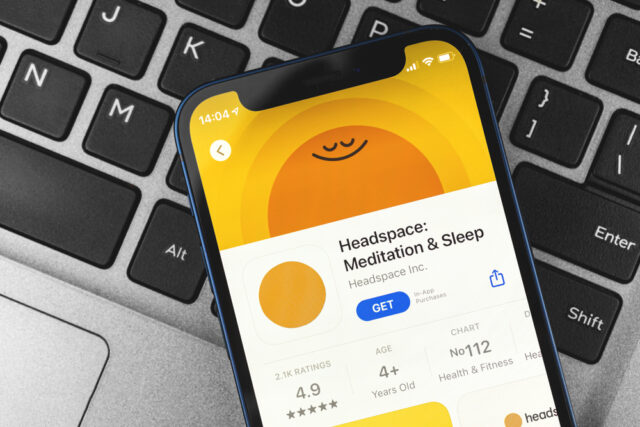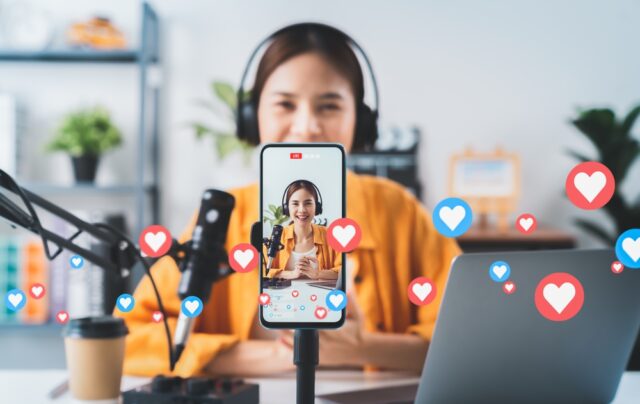
YouTuber. Podcaster. Influencer. Celebrity.
Radio Host.
Perceptually, the first four might sound trendier and more modern, even though they should exist in the same universe.
YouTuber, Podcaster, and Radio Host pertain to the platform, while Influencer and Celebrity are platform-agnostic, though blurred lines exist between all of them. Mr. Beast, the most famous and successful YouTuber, created a Squid Game-style reality show (Beast Games) that aired on Amazon Prime. Joe Rogan, the most successful podcaster, is essentially also a YouTuber.
Sam Milkman and I attended the Influencer Marketing Show in Hollywood, Florida earlier this year, a fascinating peek at the creator economy. Agencies, brands, and creators mingle in a networking-heavy environment, seeking to connect to create successful (and hopefully viral) campaigns.
One of the most successful influencer campaigns of the past few years was in Sabrina Carpenter’s global ambassador role for Redken, which included this spot. Radio people, ever written copy like this? I’ll bet you have.
Sure, that featured Sabrina Carpenter, who was becoming a household name at the time, but most influencer campaigns feature people most of us have never heard of.
Take Gillette, for example, who reached out to hundreds of beauty “micro-influencers”, some with less than 1,000 followers on social media, but with dedicated and targeted audiences. Or Audible, who hired a photography micro-influencer to promote audiobooks on the platform. Or Headspace, which used health, fitness, and lifestyle influencers to share personal stories surrounding mental health.

Headspace utilizes health, fitness, and lifestyle influencers in their marketing. (Photo credit: FellowNeko / Shutterstock.com
Coleman Insights regularly researches radio personalities, and we often find amazing stories of deep levels of engagement with their listeners. A successful radio host will be far more recognized in their home market than most influencers on social media, yet monetization rarely goes much beyond live reads on the radio brought by the sales department.
Perhaps that’s one of the greatest ironies of all.
Every time a study is released that shows the effectiveness of host-read ads on podcasts or YouTube, I consider how long ago radio learned that lesson. Radio talent are masterful at the “live read,” often generating tangible results for the advertiser. In part because radio hosts are really good at promoting things, but also because their audiences trust them.
And how is that different from the influencer/creator economy?
There are several potential implications for Radio to capitalize on this emerging segment.
We understandably view radio as a broadly focused mass medium, particularly when compared to a highly targeted digital channel. But within each broad audience, there are micro audiences that radio stations and their personalities can target digitally.
Radio talent can look beyond the modest bump they get from endorsements on the station and seek out new opportunities directly from talent agencies and brands.
Radio sales teams can look to add other media to their digital offerings with a focus on leveraging their in-house influencers (don’t call them radio hosts).
Consider:
- A fashion/beauty podcast with local salon partnerships
- A foodie podcast sponsored by local restaurants or meal kit services
- Fitness content with gym chains or supplement brands
- Parenting advice sponsored by local childcare or family services
- Home improvement content with contractor or hardware store partnerships
- An Instagram Stories series featuring local businesses
- TikTok challenges sponsored by regional brands
- LinkedIn thought leadership for local companies
- YouTube product reviews
- Custom content for local festivals or entertainment venues
Maybe these campaigns include a radio flight, maybe they don’t. The key advantage is the transfer of existing credibility to new platforms while allowing more targeted campaigns than radio spots. Brands get authentic endorsements without paying for broad radio inventory they may not need.

Now is the time for radio to learn about the influencer space, brand its marquee talent as influencers, and open new channels of monetization. Consider researching your talent to leverage these passionate followings with brands. What if you had data, for example, that showed that your morning show’s listeners display high purchase intent for certain categories?
Of course, there’s a side benefit to all of this. Influencer marketing is a marketing play that can expand the reach of radio talent and their respective brands. Any time we can unlock the opportunity to expand radio’s reach should be worthy of consideration.
